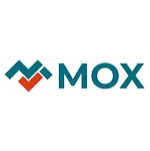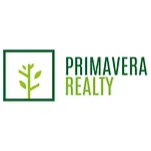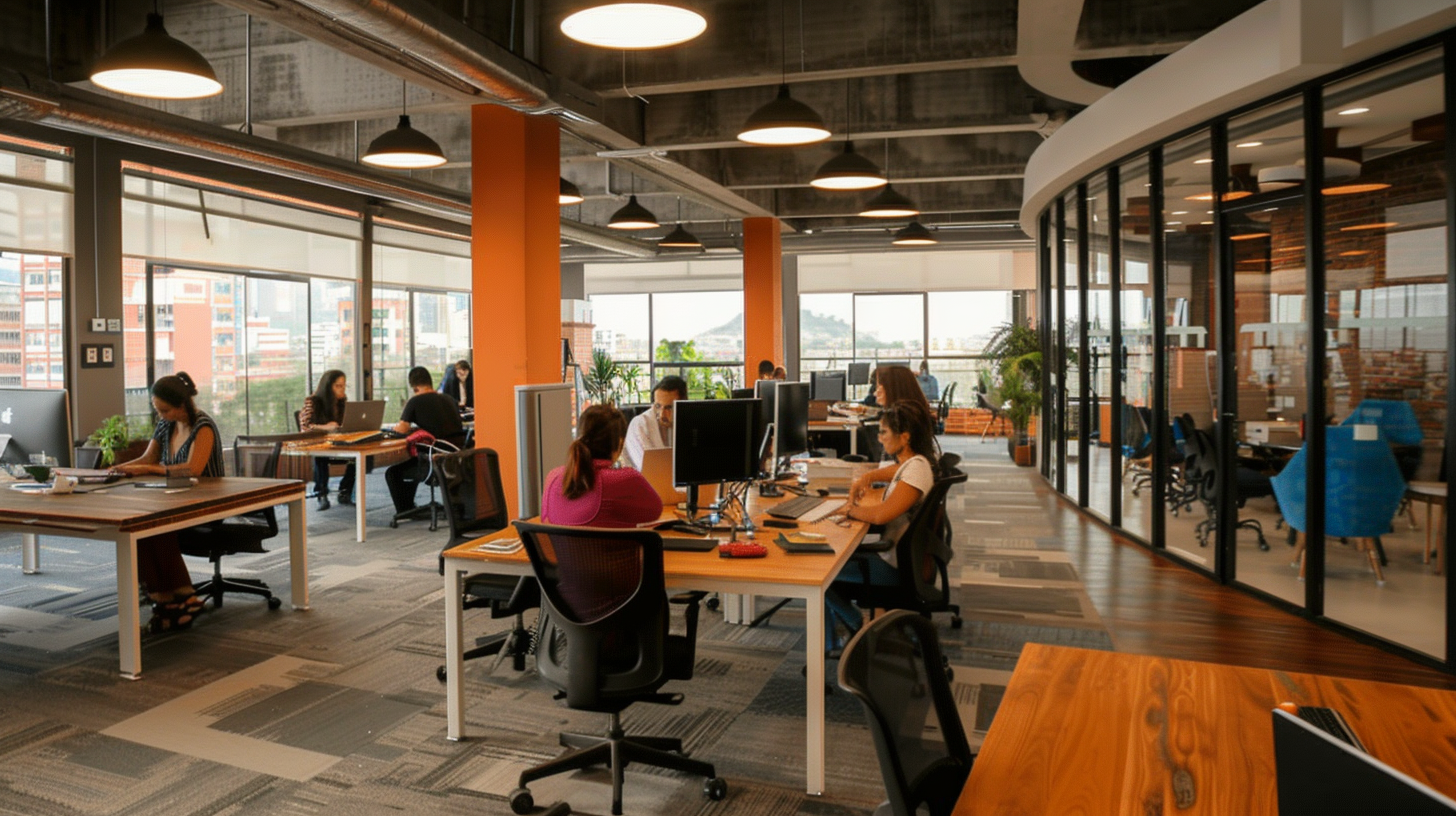
Meet Monica Quintero
Hello! I’m Monica Quintero, the driving force behind YellowKey Capital. With a robust background in Administrative Engineering, a Diploma in Corporate Finance, and a Master’s in International Business, I bring over a decade of experience in guiding foreign investors through the intricacies of the Colombian market.
EMBARK ON YOUR ENTREPRENEURIAL JOURNEY IN COLOMBIA WITH EASE
Main Services
Company
Formation Services
Tailored for foreign individuals or businesses, we guide you through every step of forming your company in Colombia.
Fractional
Management
Tailored to support foreign individuals or businesses doing business the Colombian market. We offer everything from administration to strategic planning.
Consulting
Services
Comprehensive guidance in specific business matters related to legal, HR, taxation, and accounting.
Success Stories








Our Clients







Latest From the Blog

How to Properly Close a Company in Colombia as a Foreigner
As a foreign business owner operating a company in Colombia, there may come a time when you need to dissolve and officially close down the enterprise. Whether due to retirement, changing business conditions, or any number of reasons, properly shutting down a company is a multi-step process that must be followed carefully to avoid legal issues or penalties down the road.
This guide will walk you through all the necessary steps for foreigners to close a Colombian company while abiding by the country’s corporate laws and regulations. While not an easy process, completing each phase thoroughly is critical to tie up loose ends and avoid future liabilities associated with the business entity.
By methodically working through dissolving the company, settling accounts, and canceling registrations, you can bring closure with confidence and peace of mind. Let’s dive into the first section…
Step 1: Review Corporate Documents

As a sole proprietor or single-owner of a small business in Colombia, the first step is to locate and review any existing corporate documents related to your company. However, for many smaller operations, you may not be sure where to find these records or if they even exist.
If you don’t have copies readily available, start by taking the following steps:
- Contact the Chamber of Commerce where your business is registered. Request copies of the Commercial Registration (Matrícula Mercantil), Articles of Incorporation (Escritura Pública), corporate bylaws, or any other documents they have on file.
- Check past tax filings like your NIT and ICA registrations. You may have submitted incorporation documents when first setting up the company.
- Consult a Colombian lawyer or accountant if you still cannot locate any corporate records. They can help research what founding documents may officially exist for your business entity.
The key is making your best effort to locate any legal contracts, registrations, or corporate bylaws that stipulate terms for closing down the company you’ll need to follow. If no such documents can be found, you can proceed by adhering to the standard legal process for company dissolutions outlined in Colombian corporate law.
Step 2: Settle Outstanding Debts and Liabilities

Before you can proceed with officially dissolving your Colombian company, it’s crucial to settle any outstanding debts, liabilities, or financial obligations the business owes. Leaving these unsettled can lead to legal issues, penalties, and complicate the closure process.
Accounts to Settle:
- Outstanding Loan Balances
- Final Payments to Suppliers/Vendors
- Unpaid Utility Bills
- Any Pending Tax Liabilities (Income, IVA, etc.)
- Leases or Rental Agreements to Terminate
Go through all company financial records carefully. Make a full list of any debts, liabilities, or contracted payment obligations that remain outstanding. For each one, you’ll need to either pay the outstanding balance in full or properly terminate/withdraw from the agreement according to the terms. Get written confirmation and receipts documenting settlement.
Tax Liabilities:
- File final income tax returns up to the closure date.
- Pay any outstanding income, VAT, or other tax balances.
- Obtain a “Zero Debt” certificate from DIAN confirming no pending tax obligations.
Only once you’ve fully settled and documented all outstanding debts, liabilities, and tax obligations can you move forward through the dissolution process properly.
Step 3: Hold Final Shareholders/Partners Meeting

For companies with multiple shareholders or partners, Colombian law requires holding an official final meeting to approve the dissolution of the business entity.
Here are the key steps:
- Issue Call for Final Meeting Per the bylaws, issue proper notice calling for a final shareholders/partners meeting stating the proposed dissolution will be voted on.
- Achieve Quorum Ensure the required quorum of owners is present per bylaws.
- Vote on Dissolution The owners must vote, with the required majority approving the dissolution according to the corporate governing documents.
- Appoint Liquidator If not done previously, a liquidator must be appointed by vote to oversee the liquidation process.
- Approve Liquidation Plan Review and approve a plan outlining the remaining assets to be sold, debts settled and how final distributions to owners will occur.
- Record Minutes Prepare and record detailed minutes of the meeting including:
- Method of calling meeting and notice given
- Quorum verification
- For each decision: # of votes in favor, against, abstentions
- Approval of the full minute text
- Original signatures of president and secretary
If you are the legal representative, you may need to demonstrate your authority to call the meeting and act as the dissolution authority per bylaws.
For sole proprietorships, you as the sole owner can record a written resolution documenting your dissolution approval instead of a meeting.
Step 4: Notify Relevant Authorities
Notify the Directorate of National Taxes and Customs (DIAN) about the liquidation status of your company. DIAN will modify your RUT (tax identification) to include the words “in Liquidation” at the end of your company name. Additionally, notify the Chamber of Commerce and any other relevant government entities.
Step 5: Publish a Notice of Dissolution
Publish a notice of the company’s decision to liquidate in a widely circulated communication medium, such as a local newspaper. This publication should be clear and detailed, including the liquidator’s contact information to inform creditors and other interested parties.
Step 6: Prepare an Inventory and Liquidation Project
The liquidator, along with the company’s statutory auditor or accountant, must prepare an inventory of the company’s assets and liabilities, and create a detailed liquidation project, which includes:
- Inventory of assets
- Balance sheet
- Profit and loss statement
- List of liabilities and their payment status
- Indication and destination of remaining assets
Step 7: Approve the Liquidation
Hold another shareholders meeting to approve the liquidation project prepared by the liquidator. Ensure that the minutes of this meeting explicitly state:
- Any remaining assets/value after liquidation
- Unanimous approval or vote counts for approving the final liquidation accounting
- Approval of the final settlement/distribution plan
The properly recorded minutes containing these approvals are required documentation.
Step 8: Register the Final Settlement Account Certificate
Register the final settlement account certificate with the Chamber of Commerce, formally requesting the cancellation of the company’s business registry in Colombia.
Step 9: Cancel the RUT
Request the cancellation of the RUT before DIAN. Ensure that all tax returns and obligations arising during the liquidation process are settled, as failure to do so will prevent the effective cancellation of the RUT.
By following these steps, you can ensure a thorough and legally compliant closure of your company in Colombia, avoiding potential legal issues and penalties in the future.
Wrapping Up: Ensuring a Smooth Closure
Closing a company in Colombia is a complex and multi-step process that requires meticulous attention to detail. Each phase must be completed thoroughly to avoid future liabilities and ensure compliance with Colombian corporate laws.
As a foreign business owner, navigating this process can be particularly challenging due to language barriers and unfamiliarity with local regulations.
At YellowKey Capital, we specialize in helping foreigners manage their business affairs in Colombia, including the dissolution and liquidation of companies.
Our team of experienced professionals can guide you through each step, ensuring a smooth and legally compliant closure. From reviewing corporate documents to settling outstanding debts and notifying relevant authorities, we handle the complexities so you can focus on your next venture.
While this guide provides a comprehensive overview, certain parts of the process will require legal expertise. We recommend consulting with our legal team to ensure all aspects are covered, and your company’s closure is handled efficiently and correctly.
For personalized assistance and to learn more about our services, contact us today. We’re here to make your business journey in Colombia as seamless as possible.

How to Start a Business in Colombia: A Complete Launch Blueprint for 2024
Unlocking the Colombian Market: Why Now?
Colombia has emerged as an increasingly attractive destination for entrepreneurs and businesses looking to expand their operations.
As the founder of Yellow Key Capital, I’ve witnessed firsthand the immense potential this vibrant South American nation holds. With a rapidly growing economy, a strategic geographic location, and a business-friendly environment, the time is ripe to explore the opportunities Colombia offers.
In recent years, Colombia has undertaken significant economic reforms, stabilizing its macroeconomic environment and implementing policies that foster foreign investment and business growth.
The country’s vast natural resources, skilled workforce, and improving infrastructure make it an attractive hub for various industries, ranging from agriculture and energy to technology and manufacturing.
Colombia’s strategic location presents a unique advantage, with access to both the Pacific and Atlantic oceans and proximity to major markets in North and South America.
This positioning is invaluable for companies seeking to establish a foothold in the region. Additionally, with a population of over 50 million and a burgeoning middle class, the domestic market itself offers tremendous potential across multiple sectors.
As you start your entrepreneurial journey in Colombia, this comprehensive guide will serve as your blueprint. From understanding the legal and regulatory frameworks to navigating cultural nuances, I aim to equip you with the knowledge and insights necessary to launch your venture with confidence and position it for long-term success in this dynamic market.
Understanding the Colombian Business Landscape

Colombia’s economy has experienced remarkable growth and transformation in recent decades, positioning itself as an attractive investment destination. At the heart of this economic boom lies a diverse range of thriving industries and business-friendly policies that create an enabling environment for entrepreneurship.
Economic Overview
Colombia boasts a dynamic and diversified economy, driven by a multitude of sectors. The country’s rich natural resources have fueled the expansion of industries such as mining, energy, and agriculture. Colombia is a leading producer of coal, oil, and agricultural commodities like coffee, bananas, and cut flowers.
Additionally, the nation has made significant strides in developing its manufacturing and service sectors. Industries such as textiles, automotive, and food processing have flourished, catering to both domestic and international markets.
The service sector, encompassing finance, tourism, and telecommunications, has also witnessed substantial growth, reflecting Colombia’s ongoing economic diversification.
Business-Friendly Policies
The Colombian government has implemented a series of business-friendly policies to attract foreign investment and stimulate entrepreneurial activity. These policies include:
- Trade Agreements: Colombia has established free trade agreements with numerous countries and economic blocs, including the United States, the European Union, and the Pacific Alliance, facilitating access to global markets.
- Investment Incentives: The government offers a range of incentives, such as tax exemptions, deductions, and special economic zones, to encourage investment in specific sectors or regions.
- Regulatory Reforms: Efforts have been made to streamline bureaucratic processes, reduce red tape, and enhance transparency, making it easier to establish and operate businesses in the country.
- Infrastructure Development: Significant investments have been made in improving Colombia’s transportation networks, energy infrastructure, and telecommunications systems, supporting business operations and facilitating trade.
With its diverse economic landscape, abundant natural resources, and a government committed to fostering a business-friendly environment, Colombia presents a wealth of opportunities for entrepreneurs and investors alike.
Legal Requirements for Starting a Business in Colombia

Visa Requirements
Foreign nationals intending to start a business in Colombia need a Migrant (M) visa or a Resident (R) visa:
- Migrant (M) Visa – Type 6 (M-6): This visa is for foreigners who intend to enter Colombia as managers, directors, or legal representatives of a Colombian company. It is valid for up to three years.
- Resident (R) Visa: Granted to foreigners who wish to reside permanently in Colombia. This visa is available to those who have previously held an M visa or who are starting a business that involves a significant amount of investment (typically exceeding 100 times the minimum monthly wage in Colombia).
Business Structures
When starting a business in Colombia, one of the first decisions you’ll need to make is choosing the appropriate business structure. The most common options are:
- Simplified Stock Company (Sociedad por Acciones Simplificada, SAS): This is a popular choice for both local and foreign entrepreneurs due to its flexibility and ease of incorporation. The SAS allows for a single shareholder, has no minimum capital requirements, and offers limited liability protection.
- Limited Liability Company (Sociedad de Responsabilidad Limitada, Ltda): This structure is well-suited for smaller businesses with a limited number of partners. It requires a minimum capital contribution and offers liability protection to its partners up to the amount of their respective capital contributions.
- Corporation (Sociedad Anónima, S.A.): Ideal for larger enterprises, a corporation requires a higher minimum capital investment and more complex governance structures, such as a board of directors and general shareholders’ meetings.
It’s essential to evaluate the specific needs and goals of your business to determine the most appropriate legal structure.
Registration Process
Once you’ve decided on the business structure, the next step is to register your company with the relevant authorities. The process typically involves the following steps:
- Register with the Colombian Chamber of Commerce: This is the primary step in incorporating your business and obtaining your commercial registration.
- Obtain a Tax Identification Number (Número de Identificación Tributaria, NIT): This unique number is issued by the Colombian tax authority (DIAN) and is required for tax purposes.
- Register with Municipal Authorities: Depending on your location and business activities, you may need to register with the local municipal authorities and obtain necessary permits or licenses.
- Additional Registrations: Certain industries, such as finance, mining, or energy, may require additional registrations or licenses from specific regulatory bodies.
It’s advisable to seek professional assistance from experienced legal and accounting firms to navigate the complexities of the registration process and ensure compliance with all applicable regulations.
Setting Up Your Business Operations

Choosing a Location
Once you’ve taken care of the legal formalities, the next step is to establish your business operations in Colombia. One of the critical decisions you’ll make is choosing the right location for your venture. Several factors should be considered:
- Infrastructure and Accessibility: Evaluate the quality of transportation networks, including roads, airports, and seaports, to ensure efficient logistics and access to markets. Additionally, consider the availability of utilities such as electricity, water, and telecommunications.
- Proximity to Suppliers and Customers: Depending on your industry, it may be advantageous to locate your business near your target market, suppliers, or both, to minimize transportation costs and enhance operational efficiency.
- Regional Incentives: Various regions in Colombia offer incentives, such as tax breaks or subsidies, to attract businesses to their areas. Research these incentives and determine if they align with your business goals.
- Availability of Skilled Labor: Assess the local talent pool and access to qualified employees in your desired location. Some regions may have a more concentrated workforce with relevant skills and expertise for your industry.
Obtaining Necessary Licenses and Permits
Depending on the nature of your business activities, you may need to obtain various licenses and permits from local, regional, or national authorities. Common licenses and permits include:
- Commercial License: Required for most businesses operating in Colombia, this license is obtained from the local municipal authorities.
- Industry-specific Licenses: Certain industries, such as food and beverage, construction, or healthcare, may require additional licenses or certifications from relevant regulatory bodies.
- Environmental Permits: Businesses with potential environmental impacts may need to obtain permits related to waste management, emissions, or resource utilization.
- Zoning Permits: Ensure that your chosen location is zoned for your intended business activities by obtaining the necessary zoning permits.
Hiring and Managing Employees
Building a strong workforce is crucial for the success of your business in Colombia. The country’s labor laws aim to protect employee rights and provide a fair working environment. Key considerations include:
- Employment Contracts: Colombian law requires written employment contracts that outline the terms and conditions of employment, including salary, benefits, and termination clauses.
- Employee Benefits: Employers are required to provide various benefits, such as paid vacation time, annual bonuses, and severance payments in certain circumstances.
- Payroll Taxes and Contributions: Employers are responsible for making mandatory contributions to social security, pension, and health insurance programs on behalf of their employees.
- Labor Unions: Recognize and respect the rights of employees to form or join labor unions, which play an active role in Colombian workplaces.
- Cultural Considerations: Be mindful of cultural nuances and local practices when managing your workforce to foster a positive and productive work environment.
By carefully planning and adhering to labor regulations, you can build a talented and motivated team to drive your business forward in the Colombian market.
Financial Considerations

Tax Obligations
As a business operating in Colombia, it’s crucial to understand and comply with the country’s tax obligations. The primary taxes you’ll need to address include:
- Income Tax: Both corporations and individuals are subject to income tax in Colombia. The rates vary depending on the legal structure of your business and the nature of your income sources.
- Value-Added Tax (VAT): Colombia has a comprehensive VAT system, with a standard rate of 19% applied to most goods and services. Certain items may be subject to reduced rates or exemptions.
- Payroll Taxes: Employers are responsible for contributing to social security, health insurance, and pension funds on behalf of their employees. These contributions are calculated as a percentage of each employee’s salary.
- Municipal Taxes: Depending on your location and business activities, you may be subject to additional municipal taxes, such as industry and commerce tax or property tax.
It’s essential to maintain accurate records and file tax returns in a timely manner to avoid penalties and fines. Seeking guidance from experienced tax professionals can help ensure compliance and identify potential tax optimization strategies.
Banking and Financial Services
Colombia’s banking and financial sector has undergone significant modernization, offering a range of services to support businesses. Key considerations include:
- Opening a Business Bank Account: To facilitate financial transactions and separate personal and business finances, you’ll need to open a business bank account with a Colombian financial institution.
- Access to Credit: Colombian banks and lending institutions offer various financing options, such as business loans, lines of credit, and equipment financing, to support your capital needs.
- Foreign Exchange Services: If you plan to conduct international transactions or work with foreign clients or suppliers, you’ll need access to foreign exchange services provided by Colombian banks.
- Digital Banking: Many Colombian banks offer digital banking solutions, including online banking, mobile apps, and electronic invoicing, to streamline financial management and operations.
Evaluating the offerings of different financial institutions and building relationships with reputable banks can help ensure access to the services and financing options your business requires.
Your Colombian Success Story Starts Here
As you’ve explored throughout this comprehensive guide, starting a business in Colombia offers a world of opportunities for ambitious entrepreneurs.
From leveraging the country’s vibrant economic landscape and business-friendly policies to navigating legal requirements and setting up operations, you now possess a blueprint for success.
Remember, choosing the right business structure, registering with the appropriate authorities, and obtaining necessary licenses and permits are critical first steps.
Equally important is understanding your tax obligations, securing access to financial services, and exploring funding options to fuel your venture’s growth.
Take the first step towards realizing your entrepreneurial dreams in Colombia by contacting Yellow Key Capital. Our team of experienced professionals is ready to guide you through every stage of the process, from initial planning to successful implementation.
Together, we’ll craft a tailored strategy that positions your business for sustainable success in this thriving market.
Ready to Explore Your Opportunities in Colombia?
Embarking on a business or investment venture in Colombia is an exciting step, and YellowKey Capitalis here to guide you every step of the way.

